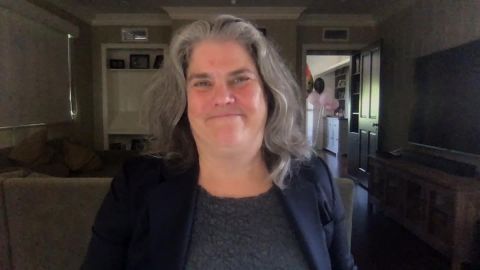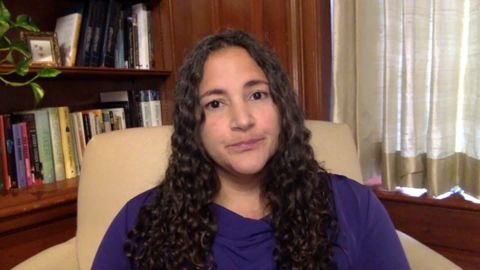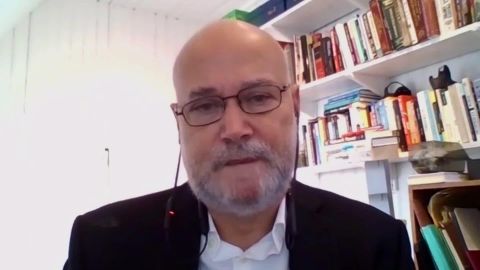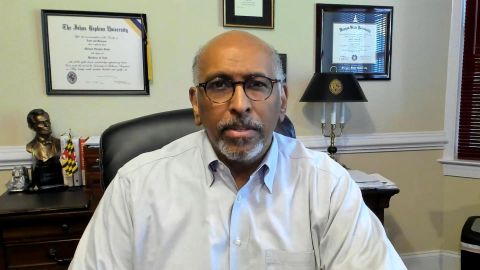Read Transcript EXPAND
CHRISTIANE AMANPOUR: What are you hearing from your students about the stresses and whether the mental health, you know, help is there for them?
LAURIE SANTOS, PROFESSOR OF PSYCHOLOGY, YALE UNIVERSITY: Yes. I mean, I think, you know, all of the things you were talking about are totally accurate. You know, COVID-19 is a stressful time for all of us, and I think it’s hitting our young people, our college students disproportionately in certain ways. You know, their routines are messed up. The main way that they connect with other individuals, which is like live in classes or like live during extracurriculars they are not able to do that in the same way anymore. And that’s not really a change in routine, that’s really a change in how these students cop, right. It’s really hard to get social connection these days. And, you know, as you’re expecting, you’re seeing things like increases and rises of depression and anxiety, you know, many more students trying to go to services, to get mental health services professionally. So, I think it’s an incredibly challenging time.
AMANPOUR: Well, let me just play sort of a mash-up of student, little soundbites that CNN got a month ago as college started to open. Let’s just play this.
(BEGIN VIDEO CLIP)
UNIDENTIFIED FEMALE: I was hoping this was like the worst-case scenario, but at least like I’m glad they are taking steps even though it was very — everything escalated very quickly. But I mean, they are taking steps like to be safe and to keep everyone safe and try to minimize as many cases as there are.
UNIDENTIFIED FEMALE: It’s been crazy and it just really panic-inducing knowing you’re not going to get fresh air for two weeks and just wondering how you’re going to get like stuff that you need, like medications and stuff like that.
(END VIDEO CLIP)
AMANPOUR: So, these are students at the University of Wisconsin-Madison who are having to prepare for, as you heard, a two-week quarantine. And we know that there is a big spike in young people, kind of the ages of 18 to 22 or so, who are getting infected. Maybe not as seriously as older people, but there is a big spike in young people, college age kids getting infected. You are the head of a residential college at Yale. What are you seeing there? How are those students being treated, being cared for? What are their stress levels?
SANTOS: Yes. Well, I think one great thing about being at Yale is that Yale as a university has done it really responsibly. Our students are getting tested twice a week. There’s really clear public health compact that all students have to follow and I think, you know, it’s borne out and the fact that Yale has been doing really well. We only have about 20 cases on campus, which is much lower than you see in other U.S. universities. But I think it’s really stressful. I mean, following the compact is really important for public health but it’s hard, you know, it’s hard not to meet up with friends for parties, you know, it’s hard not to form study groups in person, you know, to like deal with your economics problem set. So, so many of the way students interact on campus has to change around. They are doing an incredible job with it, getting really creative about using technology but, you know, it’s tough to change our routines and that manifests in feeling anxious and uncertain.
About This Episode EXPAND
Michael Steele; Laurie Santos; Yochai Benkler; Andrea Ghez
LEARN MORE



